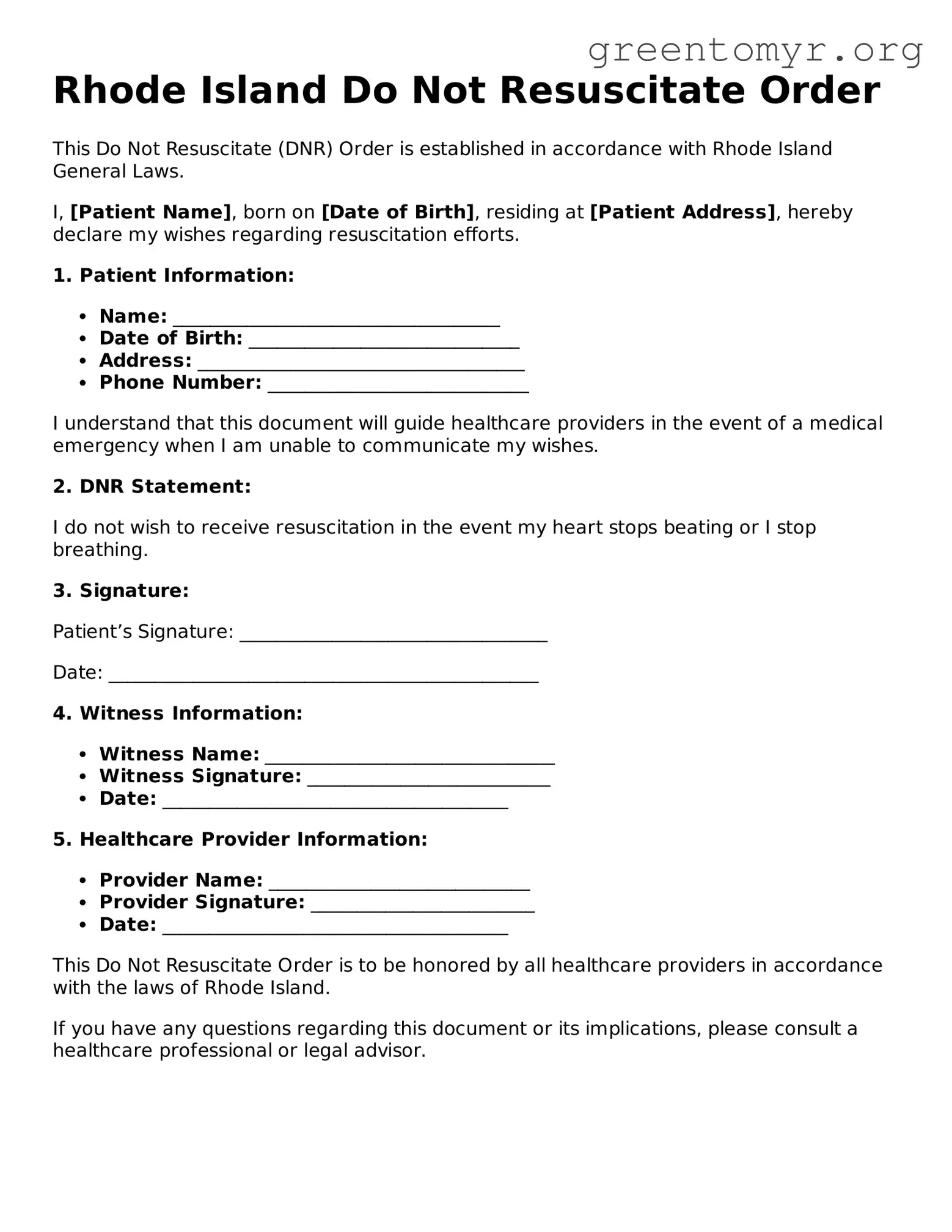Rhode Island Do Not Resuscitate Order
This Do Not Resuscitate (DNR) Order is established in accordance with Rhode Island General Laws.
I, [Patient Name], born on [Date of Birth], residing at [Patient Address], hereby declare my wishes regarding resuscitation efforts.
1. Patient Information:
- Name: ___________________________________
- Date of Birth: _____________________________
- Address: ___________________________________
- Phone Number: ____________________________
I understand that this document will guide healthcare providers in the event of a medical emergency when I am unable to communicate my wishes.
2. DNR Statement:
I do not wish to receive resuscitation in the event my heart stops beating or I stop breathing.
3. Signature:
Patient’s Signature: _________________________________
Date: ______________________________________________
4. Witness Information:
- Witness Name: _______________________________
- Witness Signature: __________________________
- Date: _____________________________________
5. Healthcare Provider Information:
- Provider Name: ____________________________
- Provider Signature: ________________________
- Date: _____________________________________
This Do Not Resuscitate Order is to be honored by all healthcare providers in accordance with the laws of Rhode Island.
If you have any questions regarding this document or its implications, please consult a healthcare professional or legal advisor.
